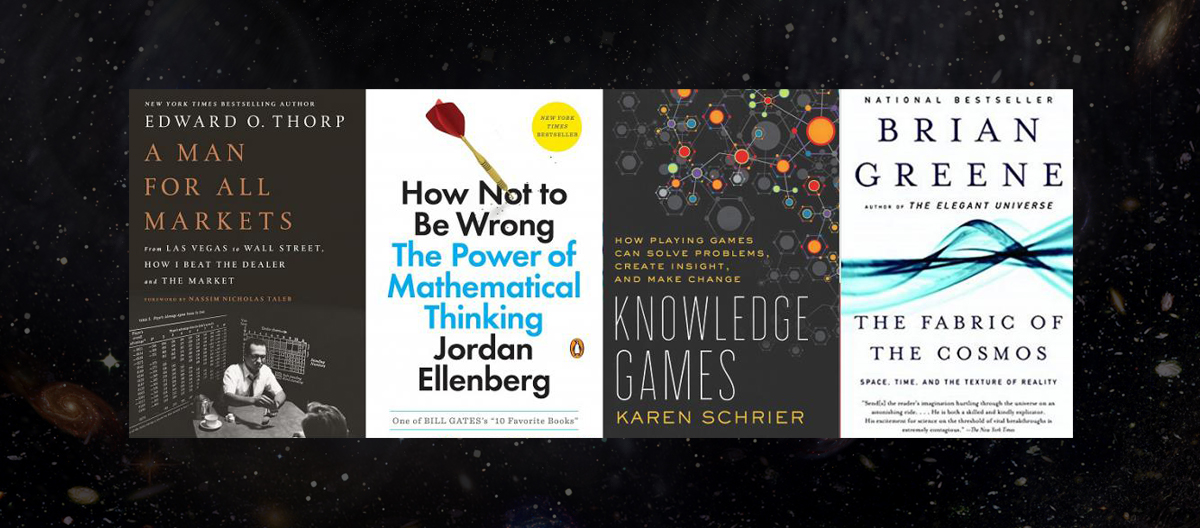Science essentials for National Book Lovers Day

In case you didn’t already know, today, Aug. 9 is National Book Lovers Day! Take a break from other forms of entertainment and consider reading one of these end-of-summer picks by Society alumni. Keep calm and science on!
A Man for All Markets: From Las Vegas to Wall Street, How I Beat the Dealer and the Market
Legendary mathematician and Society alumnus Edward O. Thorp (STS 1949) ushered in a revolution when he invented card counting. This autobiography details what he did, how he did it, and shares with readers the passion and curiosity that motivated him to defy conventional wisdom and create revolutionary tactics to crack seemingly insoluble problems.
How Not to Be Wrong: The Power of Mathematical Thinking
Math is all around us and touches everything we do. In this New York Times bestseller, Jordan Ellenberg (STS 1989; ISEF 1987, 1989) pulls examples from history and theory to demonstrate how math can be “an atomic-powered prosthesis that you attach to your common sense, vastly multiplying its reach and strength.” A suitable read for non-mathematicians and mathematicians alike, Jordan explains how math can help everyone to better understand the world around them by applying it in a meaningful way.
Knowledge Games: How Playing Games Can Solve Problems, Create Insight, and Make Change
Can playing games help solve diverse societal challenges and problems? According to Karen Schrier (STS 1995) the answer is a resounding yes. In this book she shares how academic institutions, think tanks and labs are not our only way forward, but that knowledge games like Foldit, SchoolLife and Reverse the Odds are capable of making an impact as well. By tapping into innovative data processing and computational abilities that are required in games, motivated problem-solvers are already gleaning important scientific, psychological and humanistic insights from them.
The Fabric of the Cosmos: Space, Time, and the Texture of Reality
Even as we continue to learn more about the universe we live in, certain aspects of space and time remain mysterious. In this book, Brian Greene (STS 1980; ISEF 1980) sets out to explain non-intuitive concepts like String Theory, the Heisenberg Uncertainty Principle and Inflationary Cosmology, drawing on common human experiences and analogies that everyone can understand.
Are you one of the Society’s alumni? Do you have a recent book release we should know about? Reach out and let us know!
This list contains links to Amazon.com. The Society is a participant in the Amazon Services LLC Associates Program. Please see our FAQ for more details


